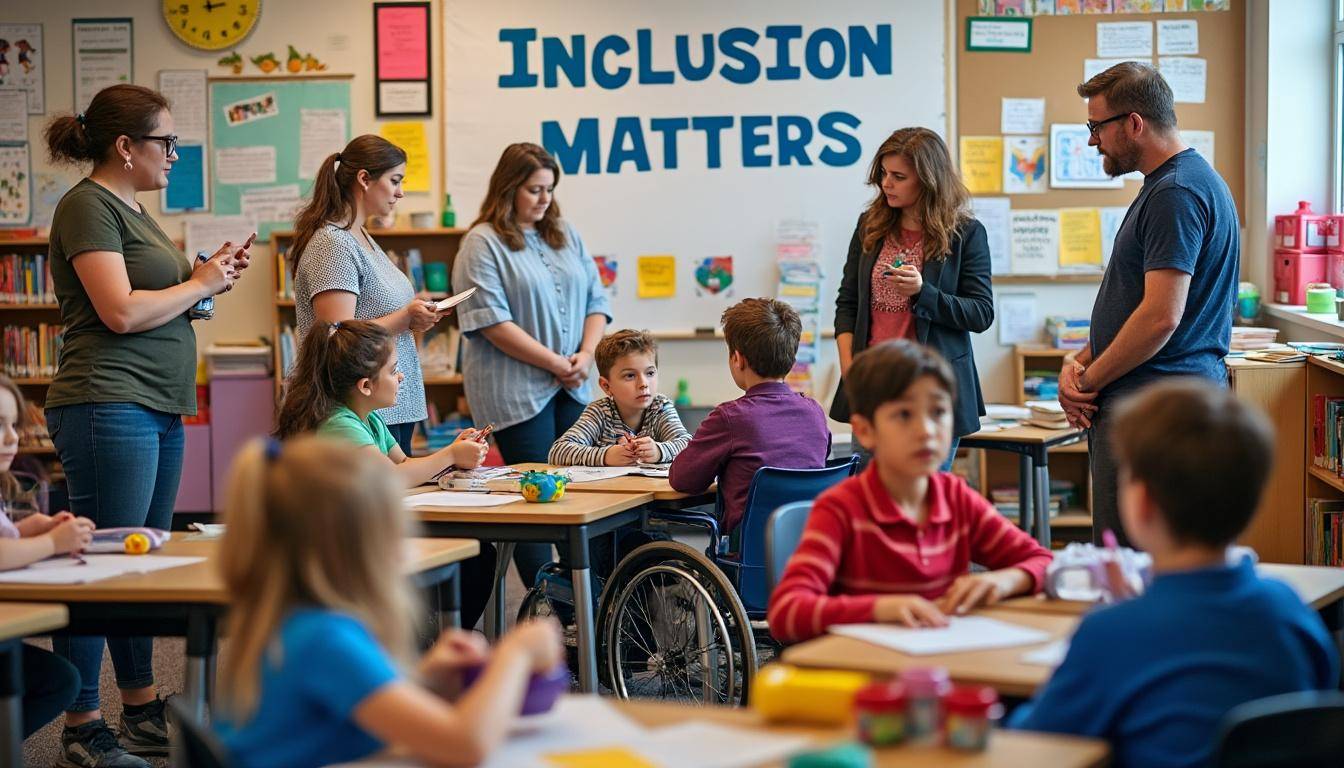Impacts of Trump Administration’s Policy Changes on Special Education for Children with Disabilities
The Trump Administration has introduced significant policy changes that could profoundly affect the support and federal funding for children with disabilities. These changes raise alarms among advocacy groups and families, who rely on federal programs to protect the rights guaranteed by the IDEA Act and sustain crucial special education services. The shrinking role of the Education Department signals potential cuts in resources, impairing access to tailored educational services and social services vital for inclusive development.
- Reduction in federal funding threatens essential special education programs.
- Potential de-prioritization of disability rights within education policies.
- Increased uncertainty for parents and educators managing Individualized Education Programs (IEPs).
- Risk of diminished enforcement of the IDEA Act protections.
Complex Effects on Federal Disability Rights Enforcement and Social Services
The proposed withdrawal or reduction of support from federal agencies directly responsible for disability rights enforcement, such as the Administration for Community Living and the Administration for Children and Families, compounds the challenges faced by families of children with disabilities. These agencies facilitate access to social services including early childhood programs like Head Start, critical for developmental support.
- Cuts risk limiting early intervention programs that prepare children for education.
- Weakening of systemic oversight may reduce accountability in special education services.
- Families losing coordinated support could face increased financial and emotional burdens.
Parents seeking guidance on navigating these turbulent changes may find valuable information in resources on developing effective EHC plans for special needs or addressing parental concerns about disability funding.
Understanding the Consequences for Special Education and IDEA Act Implementation
The IDEA Act establishes the foundation for equitable education for children with disabilities; however, administration-driven budget cuts may erode its reach. Schools risk experiencing staff shortages, diminished program availability, and reduced training for special education professionals. This shifts the burden to families and local communities to compensate for the shortfall in federal support.
- Potential job cuts in special education departments across public schools.
- Lowered program quality and availability for children with combined hearing and vision loss.
- Gap between needs and services widens, particularly in underserved states.
One can learn more about the broader educational implications and effective advocacy from analyses such as impact assessments of Trump’s cuts to special education and the role of teachers’ unions protecting students’ rights.
Community and Advocacy Group Responses to Policy Shifts
National and local advocacy groups are actively responding to these policy shifts, organizing forums and campaigns to protect the educational rights of students with disabilities. Parents and educators are urged to stay informed, collaborate, and mobilize to counteract reductions in support frameworks.
- Advocacy coalitions increasing awareness about potential impacts.
- Community workshops teaching families how to advocate effectively.
- Legal challenges in progress to uphold civil rights within education.
For proactive engagement and empathy in education, explore insights from initiatives like Giorgio Armani’s learning empathy programs and global inclusive education perspectives from UNICEF’s inclusive education campaigns.
Preparing Families and Educators for Future Challenges in Disability Support
Given the uncertainty surrounding federal backing, parents and educators must be equipped with strategies to support children with disabilities within existing limitations. Building collaborative relationships with schools, utilizing alternative resources, and understanding evolving legal frameworks become increasingly crucial.
- Leverage community events such as Go Baby Go events that empower children with mobility challenges.
- Consult evidence-based treatment guides like the steps autism treatment guide for optimizing developmental outcomes.
- Engage in trauma-informed education models, which are vital for students affected by broader social challenges, as discussed in education for traumatized children in conflict zones.
Staying abreast of funding trends and policy evolution is essential. Resources detailing responses to the Administration’s shifts can be found in specialized reports highlighting the intersection of education, health, and social well-being.


